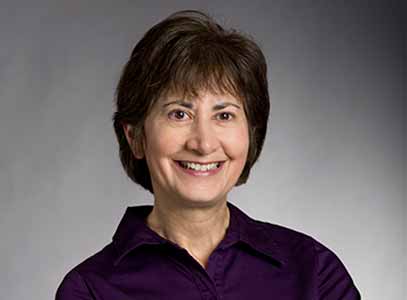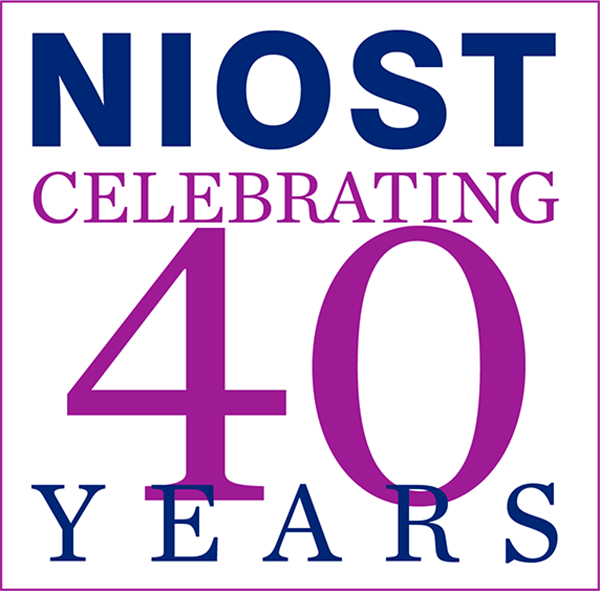Get to Know NIOST: Working Towards Quality for All - An Interview with Kathy Schleyer
November 21, 2018
 As part of our new series, “Get to Know NIOST: Working Towards Quality for All,” Kathy Schleyer, Director of Training and Quality Improvement at NIOST, recently took some time to answer questions about her work and the idea of quality in out-of-school time.
As part of our new series, “Get to Know NIOST: Working Towards Quality for All,” Kathy Schleyer, Director of Training and Quality Improvement at NIOST, recently took some time to answer questions about her work and the idea of quality in out-of-school time.
For Schleyer, who has been with NIOST since 2002, training goes beyond just individual events and encompasses “thinking on a broader scale about how you can elevate professional development” for both individual organizations and out-of-school-time workers within a city or across a state. She explained, “It’s more typically looking at systems of professional development, helping create those systems to build sustainability and impact quality, and through quality, impact outcomes for youth.”
Schleyer added, “A lot of NIOST training work is around tools and using our APAS system, the Afterschool Program Assessment System,” which includes both quality observation tools and surveys that measure outcomes. “To be successful in using tools,” she advised, “typically there’s other training that’s required as well, around leadership, readiness, coaching, all things that go into that broader need in supporting and implementing quality from the management level down to the actual practitioners who are working with children in the field.”
Tools aren’t the only things that matter, however. “There can’t be quality without a focus on staff, because the staff create the climate and opportunities for fun and learning,” she insists.“ Quality is helping staff understand their role in providing interesting and challenging activities, helping youth gain skills and confidence, and having youth feel there is a caring adult.” While the tools focus on certain elements of quality related to strengthening relationships and youth experiences in programs, one also has to look at other factors, such as environments, safety, partnerships, community support, and a program’s financial sustainability, she said, adding, “There are many elements to quality and we work on all of those.”
The elements NIOST and Schleyer work on with clients can evolve over time. Schleyer explained, “We have many long-standing clients, and often we’ll be introduced to an organization or a city and we’ll start working with them on a smaller scale, do a training or two, and then that will grow into more of what we call system-level support, thinking about how they can really work to both maintain and grow their quality. It’s often around that idea of strengthening their staff and their professional development, strengthening their quality, and using a continuous quality improvement process in their programs.”
Schleyer works with clients on everything from introductory trainings around tools, coaching, and leadership, to train-the-trainer programs that empower an organization’s trainers to train their own staff, to “ways to engage their stakeholders in conversations around strengthening their system.”
The biggest challenge, Schleyer says, is turnover in the field, even in programs or networks that are well established. “The departure of a particular individual, whether it’s at the leadership level or the staff level is something that’s always an issue and can really up-end sustainability,” she explained.To address this, she said, “I try to do a lot of capacity building in my work. It’s not just ‘Come in, do a training, leave,’ but it’s come in, and we’ll think about how training is a piece of the bigger picture.”
“More and more these days in the work that I do, when I think about this capacity building, it’s about how to prepare programs for turnover. How do you think about protecting and safeguarding their work so that it can handle the turnover whether at the leadership level or at the staff working with youth level?”
The answer depends on needs and issues of the particular organization. “For instance, if it’s practitioner turnover, then one has to have the process of continuous quality improvement really embedded into the direct service level so if a site coordinator or staff person departs, when new staff come in, they get oriented to the ongoing work and understand the vision and what’s important in quality to that organization,” she said. This way, they can begin understanding and using tools right away. This makes the process of bringing people in easier than if, say, one person in an organization was responsible for the tools. If they leave, “then no one knows what they’re supposed to be doing with the tools.”
Schleyer likes the interconnectedness of working alongside researchers and evaluators who bring the latest thinking and best practices forward for her to share with clients. She explains, “As much as our work has tried-and-true practices, there are always new directions we are exploring.”
Despite the challenges, Schleyer enjoys her work. She asserted, “I love working directly with the clients and trying to help solve problems. I love trying to help folks grow. I love to introduce people to our tools, because I think the tools are really important and really helpful to programs, and I love the excitement, when programs actually see the tools and say, ‘Wow. This can really help us, and we can use this to train our teams.’”



